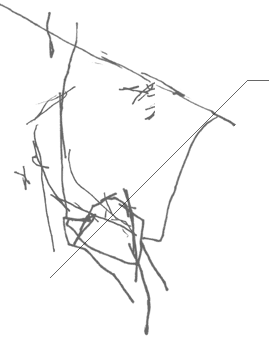Sunday, February 22, 2026 |
||

|

by Michael Goldberg
Monday, September 16, 2002
Reconsidering Springsteen's 'The Rising'
Tom Petty indicts corporate radio
|
|||
|
A funny thing happened when, three weeks after I slammed Bruce
Springsteen's The Rising, I played it again. Lo and behold, I
liked it! Now don't go jumping to conclusions. I didn't say I love
it, and I still don't think it's a great work. But now, instead of
sounding like a major failure, The Rising sounds like a damn
good album.
You might recall that after giving The Rising over a dozen listens last month, I wrote: "On first listen, I thought it sucked. Now, many listens later, I like some of it, but I find problems with much of the songwriting, production and arrangements. Many of the arrangements sound heavy-handed and some of the lyrics seem shallow and clichéd." And I wrote: "Further On [Up the Road]" was "a perfect example of a song that never should have been recorded." What happened? How could my opinion of the album change so dramatically? I have long believed that our preconceptions often overshadow what we hear when we listen to new music. I think that, depending on what mood we're in or how acquainted we are with a particular piece of music, what we "hear" may even be different. Sometimes, I've found that after I've listened over and over to an album by an artist I really care about, trying but failing to get it to "kick in," the songs that previously just didn't work for me miraculously sounded quite wonderful once I let some time pass. Certainly that happened with The Rising, but I also had a similar experience with the recent Sleater-Kinney album, One Beat. In the case of One Beat, it wasn't that the album didn't strike me as something special on first listen; it did. But over time, after I first received an advance, I'd listen, let a few days go by, then listen again, and my appreciation grew. Where initially I found a handful of songs that immediately made sense, after two months of listening the entire album worked for me. Every song stood out as something special. Perhaps what's going on is a kind of acclimatization. I simply need time to get used to certain songs, to let them sink in. Ode To 'The Last DJ' From the shimmering 12-string guitar riff that opens the title track off Tom Petty's upcoming album, "The Last DJ," this homage to the great freethinking, free-speaking DJs of the late '60s and early '70s is a winner. Petty has always been good at nailing music-business "villains," and in this case his sights are clearly on the suits who have spent the past 30 years neutering what was once accurately called "underground radio." "Well you can't turn him into a company man," sings Petty in his Dylanesque voice. "You can't turn him into a whore/ And the boys upstairs just don't understand anymore/ Well the top brass don't like him talking so much/ And he won't play what they say to play/ And he don't want to change what don't need to change." The song is classic Petty, and also classic Byrds-influenced jangly folk-rock. At three minutes, 31 seconds, the song is, ironically, tailored to radio, or at least, great rock 'n' roll radio as those of us who were kids in the mid-'60s experienced it. Certainly this song plays off boomers' nostalgia for the past, when they (we) were young. But at time when ClearChannel dominates American radio with programming that might as well be the work of what Philip K. Dick called "simulacra," androids programmed to imitate humans, it's a good time for someone to voice in song the frustration many of us have felt for years. Certainly it will be interesting to see if Petty can get away with biting the hand that feeds, so to speak. "There goes the last DJ," goes the chorus. "Who plays what he wants to play/ And says what he wants to say/ Hey hey hey/ And there goes your freedom of choice/ There goes the last human voice/ There goes the last DJ." |
||||